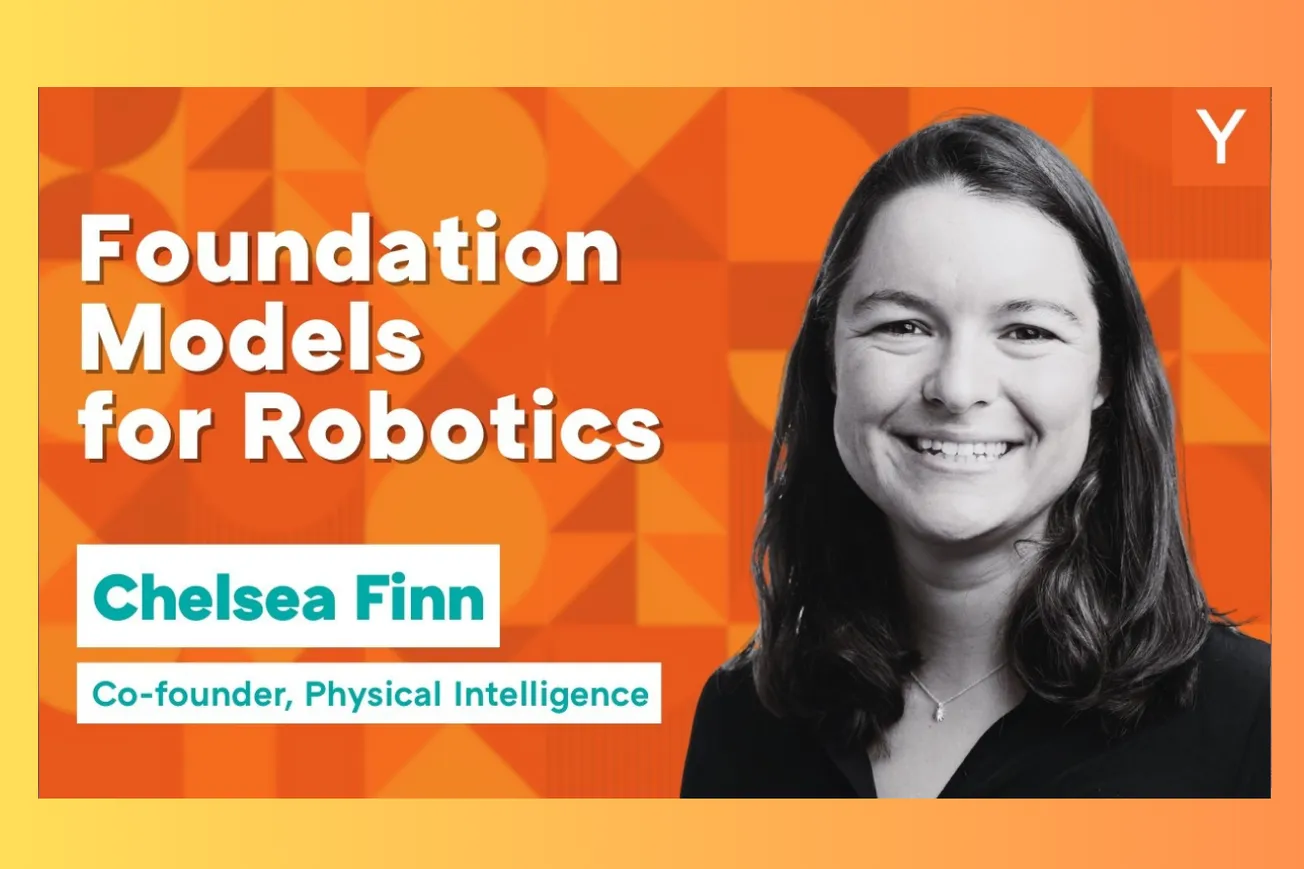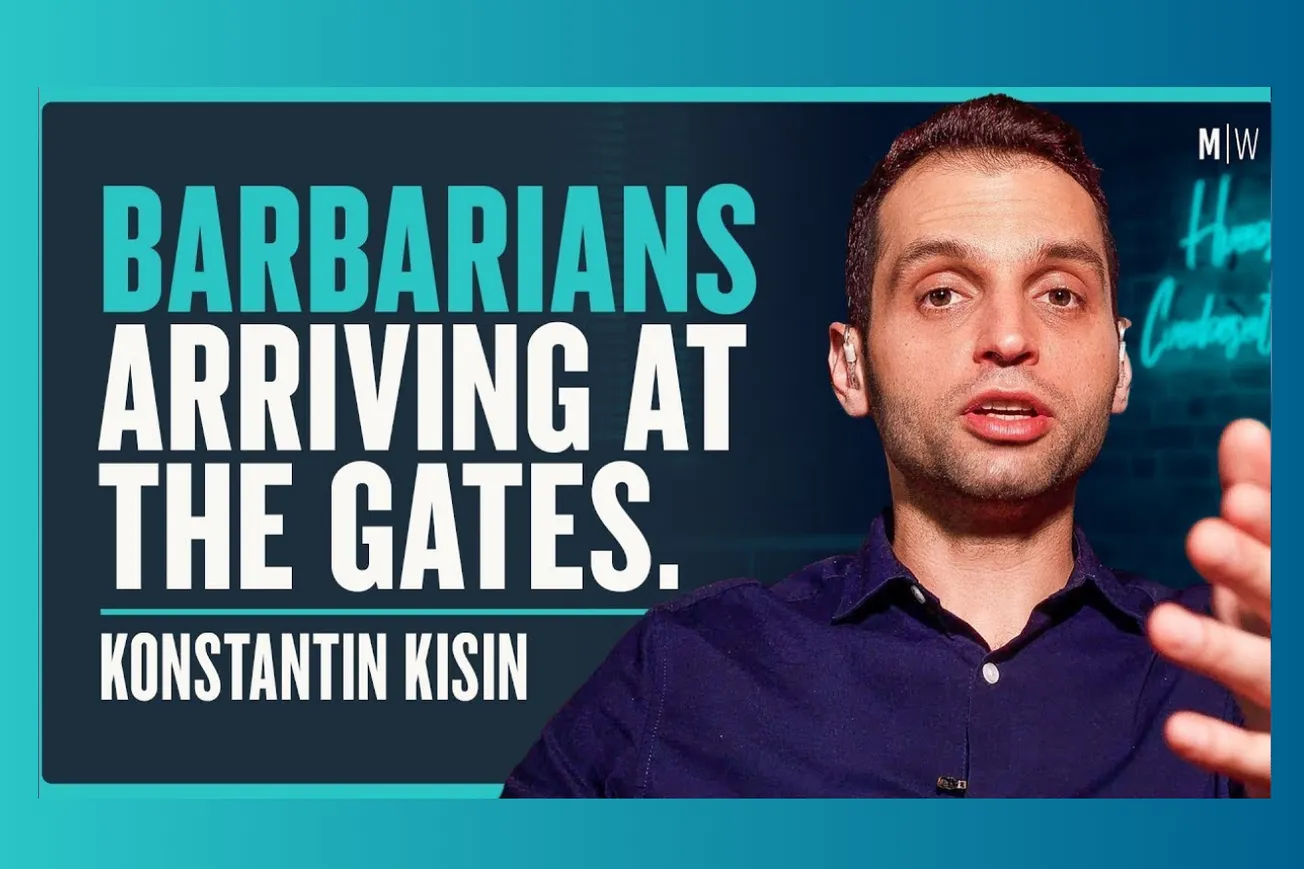Table of Contents
Andreessen Horowitz's Anish Acharya joins Peter Diamandis and team to discuss why AI represents the most "human" technology ever built and its implications for the future of everything.
Key Takeaways
- AI represents the first technology to address human emotions and subjective experiences rather than just intellectual tasks
- White collar work faces extinction between 2029-2031, requiring immediate career path remapping for millions of workers
- Google's search monopoly faces existential threat as AI mode cannibalizes core advertising revenue despite technical superiority
- Consumer spending will shift to food, rent, and software as AI services command $200-250 monthly subscription prices
- Abundant opportunities exist across creative, productivity, and companionship categories but require AI-first founding teams
- Apple's continued AI failures represent a cultural problem with their sanitized approach to human technology experiences
- Countries without sovereign compute strategies will face permanent economic disadvantage as high-value AI use cases dominate data centers
- The abundance mindset transition from fear and scarcity represents humanity's biggest psychological shift in generations
- Entrepreneurship emerges as the only viable career path as traditional employment structures collapse under AI automation
- Stable coin legislation will unlock agent-to-agent microtransactions creating entirely new economic paradigms
The Abundance Paradigm: AI as Humanity's First Emotional Technology
The conversation opened with Andreessen Horowitz's revolutionary framework for understanding AI's unique position in technological history, fundamentally different from previous innovations.
- For 40 years, technology has primarily extended human intellect through tools like spreadsheets that enhance computational capabilities without addressing emotional needs
- AI represents the first technology capable of exploring subjective human experiences including creativity, companionship, and personal growth rather than just logical processing
- The "bicycle for the mind" metaphor from Steve Jobs specifically meant intellectual enhancement, but AI extends to previously untouchable aspects of human consciousness
- Senior citizens benefit disproportionately from AI interfaces because voice and unstructured interaction methods bypass traditional technology adoption barriers
- AI nurse applications demonstrate practical emotional technology applications, providing pre and post-surgery support that dramatically improves health outcomes through empathetic interaction
- The separation of creative inspiration from technical skill democratizes artistic expression, allowing anyone to manifest their creative visions regardless of traditional technical training
Anish Acharya emphasized that abundance isn't about luxuries but about possibilities, with AI uniquely positioned to address the left-brain/right-brain integration missing from previous technological generations. This represents a fundamental shift from fear-and-scarcity-based thinking to abundance mindsets that could reshape human psychology itself.
Market Opportunities in the Consumer AI Revolution
A16Z's analysis reveals unprecedented opportunities across consumer categories, with pricing power and global reach previously unimaginable for software products.
- Consumer investing becomes hyper-cyclical with AI representing a more significant paradigm shift than mobile technology, potentially larger than the internet itself
- Companies like Midjourney generate hundreds of millions in cash flow with minimal capital requirements due to automated coding and low build costs
- Pricing power reaches $200-250 monthly consumer subscriptions, with Google announcing $250/month plans and ChatGPT commanding $200/month premiums
- Future consumer spending will concentrate on three categories: food, rent, and software, with AI services becoming mandatory rather than optional
- Multiple foundation models create competitive dynamics preventing single-platform monopolization, unlike iOS App Store dependencies
- Markets fragment by aesthetic and use case rather than converging, with companies like Midjourney and Ideogram serving different creative directions despite similar core functionality
The Fred Wilson rule of investing in three or more technical founders who are best friends remains relevant, with successful companies like Krea operating as communal research houses where teams live and work together in singular focus environments.
The Great Search Disruption: Google's Innovator's Dilemma
Google faces an existential threat to its search monopoly as AI-first interfaces challenge 20 years of advertising ecosystem commitments.
- Google's AI mode launch caused stock price declines because improved search capabilities directly cannibalize core advertising revenue streams
- The "cooler" AI search becomes, the more it undermines Google's traditional blue-link advertising model that generates most company revenue
- Generational shifts show younger users already preferring ChatGPT over Google for information discovery, creating long-term brand loyalty challenges
- Counter-positioning advantage allows AI-first companies to pursue strategies Google cannot without destroying existing revenue streams
- Google's technical superiority in video generation with Veo models fails to translate into market share due to platform integration constraints
- The "front door to the internet" position becomes vulnerable for the first time in 20 years as AI interfaces bypass traditional search entirely
Dave Blondon noted that Google's 20-year commitment to an advertising ecosystem creates nearly insurmountable barriers to embracing truly disruptive AI interfaces, despite possessing superior underlying technology.
White Collar Work Extinction Timeline: 2029-2031
The panelists presented a stark timeline for white collar job displacement that demands immediate action from workers and organizations.
- The endpoint of white collar work elimination by 2030-2031 represents a straight-line progression from current capabilities rather than sudden disruption
- Massive job dislocation begins in 2026-2027, requiring career path remapping within 2-3 years for millions of workers
- Organizations must immediately transition employees to AI user status with formal education programs rather than waiting for gradual adoption
- Leadership failures occur when companies cite regulation, data leaks, or hallucinations as excuses for avoiding AI integration preparation
- Entrepreneurial mindset development becomes essential as traditional employment structures collapse under automation pressure
- Technical founders with AI expertise increasingly dominate successful startups, but product visionaries can acquire technical capabilities through democratized tools
The timeline compression leaves minimal adjustment periods for workers who have planned careers around traditional white collar roles for decades.
Infrastructure Wars: Compute as the New Currency
The discussion revealed how compute access will determine national economic competitiveness as AI capabilities become essential for citizenship.
- Countries lacking national compute strategies face permanent economic disadvantage as high-value AI use cases outbid populations for data center access
- India's semiconductor manufacturing plan acknowledges expected underutilization and bureaucratic challenges despite $4 billion fab investments
- 14-nanometer chip production capabilities remain valuable despite not competing with cutting-edge TSMC processes due to sustained chip shortages
- Nvidia's valuation exceeding Meta and approaching Google reflects chip demand fundamentals rather than speculative bubbles
- AI-designed chip architectures could dramatically reduce development cycles from yearly updates to real-time algorithmic optimization
- Tesla Megapacks for Colossus 2 demonstrate practical power infrastructure solutions for massive GPU deployments requiring power spike smoothing
Dave Blondon emphasized that 180 out of 200 countries have no AI compute strategy, creating inevitable economic stratification between nations with and without sovereign AI capabilities.
Apple's Leadership Crisis: The Missing Visionary
Apple's continued AI struggles reflect deeper organizational problems around vision and technical execution that threaten the company's future relevance.
- Siri remains embarrassingly inadequate after seven years under ex-Google AI chief John Giannandrea, failing basic name recognition tasks
- Cultural insularity prevents Apple from attracting top AI talent while competitors recruit globally for breakthrough capabilities
- The visionary-integrator model requires clear leadership roles, but Apple lacks identifiable visionaries driving AI strategy and innovation
- Steve Jobs receives twice as many Google searches as Tim Cook 14 years after his death, illustrating persistent vision gaps
- Apple's committee-driven approach to removing humanity from products conflicts with AI's fundamentally human nature
- Partnership challenges prevent Apple from leveraging external AI capabilities due to their historical preference for internal development
The absence of visible leadership in AI represents an existential threat as competitors develop transformational capabilities Apple cannot match through traditional development approaches.
Common Questions
Q: When will white collar jobs actually disappear?
A: Massive displacement begins 2026-2027 with near-complete automation by 2029-2031, leaving only 2-3 years for career remapping.
Q: Can Google maintain search dominance against AI interfaces?
A: Their technical superiority faces cannibalization dilemma as better AI search destroys advertising revenue, creating innovation paralysis.
Q: What careers will survive AI automation?
A: Entrepreneurship emerges as the primary viable path, requiring creativity and problem-solving skills rather than routine task execution.
Q: How should countries prepare for AI competition?
A: Sovereign compute strategies become essential; nations without data center access face permanent economic disadvantage.
Q: Why is Apple failing at AI development?
A: Cultural problems around sanitized product development conflict with AI's human nature, combined with leadership vision gaps.
The AI reset represents humanity's transition from scarcity-based thinking to abundance paradigms, enabled by the first technology capable of addressing subjective human experiences. Success requires embracing entrepreneurial mindsets, developing AI collaboration skills, and preparing for fundamental economic restructuring within the current decade.





